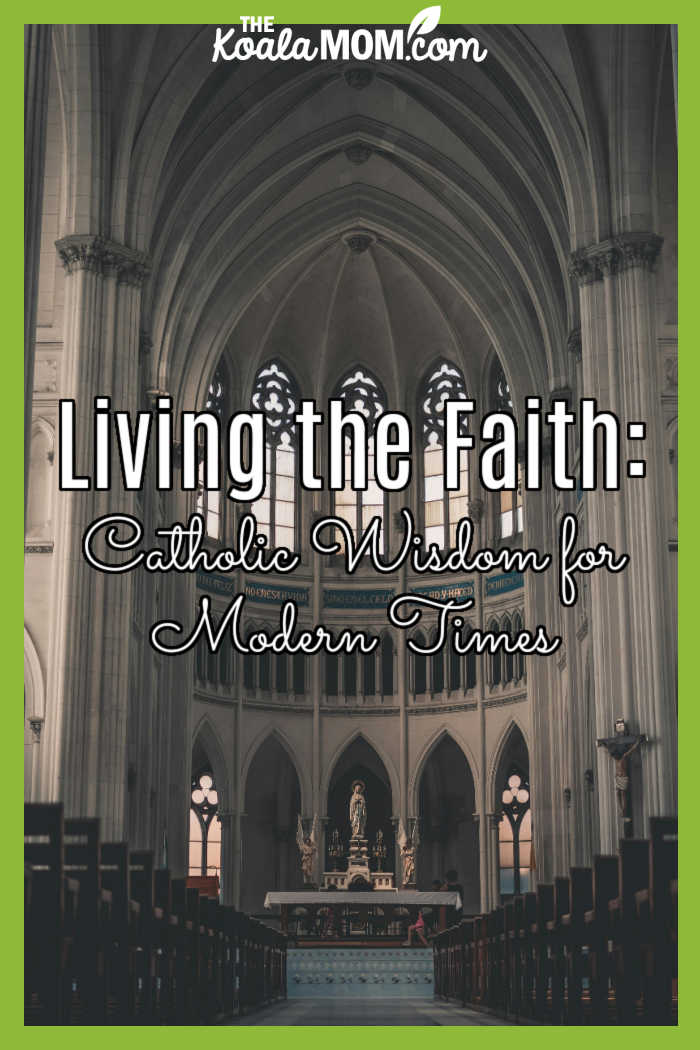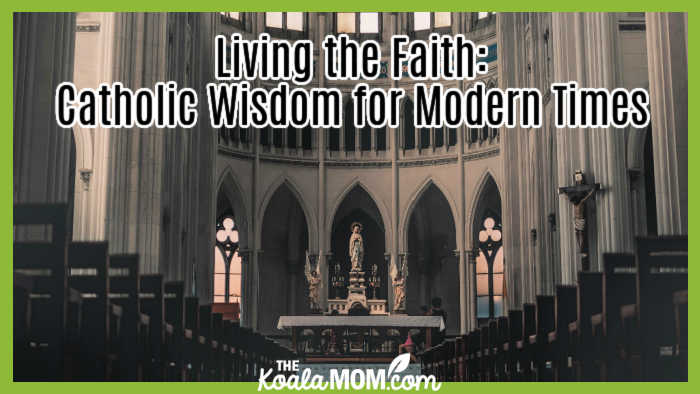In an era where the pace of change can be dizzying, the ancient traditions of Catholicism offer a steady hand to those seeking direction. The Catholic Church’s deep roots and time-tested wisdom provide a counterpoint to the fleeting trends that often dominate modern discourse. It’s not merely a matter of ritual and dogma; it’s about finding relevance in centuries-old teachings that still resonate with our contemporary challenges.
From the sacredness of everyday life to the quest for social justice, Catholicism’s rich tapestry weaves through the very fabric of existence, proposing a vision that transcends the temporal.
So, let’s embark on a journey together to explore how these enduring principles can illuminate our path in today’s world.

Embracing Tradition in the Tech Era
As digital realms increasingly dictate the rhythm of our lives, there’s a yearning for authenticity that gadgets can’t satisfy. The Catholic tradition, with its emphasis on community and reflection, beckons us to look beyond the screen. It encourages a harmonious balance between progress and preservation, fostering a sense of continuity with the past as we chart new courses for the future.
In this dance of innovation and antiquity, Catholic wisdom teaches us to cherish timeless values amidst the ephemeral nature of technological advancements.
The Sanctity of the Mundane
Within the ordinary, the divine waits to be recognized. Catholic teaching imbues daily actions with profound significance, transforming mundane tasks into acts of worship. Whether it’s sharing a meal or offering a smile, the faith illuminates the sacred in the secular. This perspective invites believers to live intentionally, elevating routine encounters to moments of grace.
It’s in these unassuming exchanges that the heart of Catholic wisdom pulses strongest, echoing the sentiment that every aspect of life is hallowed ground.
“Understand this well: there is something holy, something divine hidden in the most ordinary situations, and it is up to each one of you to discover it.” ~ St. Josemaria Escriva
Family Ties: Nurturing the Domestic Church
Catholicism holds the family unit in high regard, often referring to it as the “domestic church.” Here, faith is lived and nurtured within the home, creating a microcosm of love, sacrifice, and support that mirrors the larger Church community.
The domestic church becomes a school of virtue, where children witness firsthand the application of Catholic morals and ethics. In this intimate setting, families grow together in faith, reinforcing the bonds that fortify them against the storms of modern life.
Christ chose to be born and grow up in the bosom of the holy family of Joseph and Mary. The Church is nothing other than ‘the family of God.’ ~ Catechism of the Catholic Church, 1655
Stewardship of Creation
A keystone of Catholic teaching is the responsible care for God’s creation. As stewards, we’re called to respect and protect the environment, recognizing the interconnectedness of all life. This principle compels action against the exploitation of natural resources and advocates for sustainable living.
It is an urgent and prophetic message that resonates profoundly in an age of ecological crisis, reminding us that reverence for the Creator is reflected in our treatment of the created.
“Everything is connected, and as a family of nations we must have a common concern: to see that the environment is cleaner, purer and preserved. And take care of nature, so that it takes care of us.” ~ Pope Francis
Pursuing Social Justice
The Catholic ethos is deeply rooted in the pursuit of social justice. It propels us to stand with the marginalized and to be a voice for the voiceless. The faith’s preferential option for the poor isn’t just theoretical; it demands concrete action to address inequalities and promote human dignity. This commitment to justice often intersects with political and economic spheres, challenging Catholics to be active participants in shaping a more equitable society.
Financial Morality: Beyond Tithing
Catholic wisdom extends to financial ethics, including practices like tithing and charitable giving. But what if you have financial questions of a more mundane nature, such as what happens if you pay a loan off early? The Church’s teachings encourage responsible stewardship of personal finances, viewing early repayment as an opportunity to reduce debt and act prudently. This approach reflects a broader understanding of using material wealth to further the common good rather than merely accumulating it for personal gain.

The Catholic faith is not an artifact to be admired from afar but a living stream that nourishes the soul amidst the tumult of modern times. Its teachings offer a compass by which to navigate the complexities of the present, always pointing toward the eternal. By weaving together the sacred and the secular, the ancient and the contemporary, Catholic wisdom remains a beacon of hope and a source of strength for those who choose to live by its light.

No Responses Yet